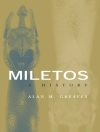Kurdistan has a storied and turbulent past, marked by a relentless struggle for self-determination and survival. Kurdish women have been at the forefront of this struggle: their lives are a testament to resilience in the face of relentless adversity, as they navigate the complexities of revolution and the quest for freedom and equality.
This groundbreaking book is the first comprehensive study of leftist women guerrillas in Iranian Kurdistan, predating the emergence of women fighters in Rojava by more than three decades. Focusing on Komala (1979-1991), a radical Kurdish-Iranian organisation pioneering the inclusion of women as combatants, Women of Komala examines the lives and political participation of marginalised women.
Drawing on extensive interviews with former members, the book analyses subjects rarely addressed within Kurdish political parties, including familial, social, and organisational obstacles; gendered organisational dynamics; patriarchy; the issue of children; and the sexual division of roles within families and the party. This rich account situates Komala within the political context of the 1979 Revolution and its aftermath, shedding light on the importance of critical reflection on gender relations during this pivotal period in the history of Kurdistan and Iran.
İçerik tablosu
Introduction
Part I: Kurdish Women in Revolution: The Path to Engagement
1. Between Repression and Deprivation: Women Under the Pahlevi Dynasty
2. Women’s Subordination in Kurdish Society
Part II: Militant Trajectories Within Komala from the Revolution to 1981
3. The Eruption of Kurdish Women into Organized Political Life
4. The Obstacles to Women’s Political Participation
5. The Socio-Political Activities of Female Militants
6. Becoming a Peshmerga Under State Repression
Part III: Patriarchy in the Lives of the Komala Peshmerga, 1981–1991
7. Peshmerga Women and the Problems of Integration
8. Bodily Discipline and the Peshmerga
9. Family Life Within the Organization
10. The Disappearance of Peshmerga Women
Conclusion
Yazar hakkında
Janet Biehl was the collaborator of the late Murray Bookchin. She translated Revolution in Rojava by Knapp et al. and the memoirs of the Kurdish revolutionary, Sakine Cansiz.












